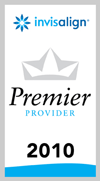Our Blog
Ask Childers Orthodontics: What’s the deal with mouthwash?
January 27th, 2012
 While mouthwash is not an alternative to regular brushing and flossing, it can help keep your teeth and gums clean and healthy. There are several different types of mouthwashes available, and all of them will help do different things for your smile. The most common types of mouthwashes are:
While mouthwash is not an alternative to regular brushing and flossing, it can help keep your teeth and gums clean and healthy. There are several different types of mouthwashes available, and all of them will help do different things for your smile. The most common types of mouthwashes are:
• Fluoride – fluoride is the most used type of mouthwash available, and is used to strengthen the enamel of the teeth while preventing cavities and tooth decay.
• Antiseptic – an antiseptic mouthwash is used to kill bacteria and germs in the mouth. Most commonly used before and after a dental surgery, antiseptic mouthwashes can also help to fight gum disease, and halitosis (chronic bad breath). Antiseptic mouthwashes can affect your sense of taste and may stain the teeth, so it is recommended that you consult your dentist before using this type of mouthwash.
• Combination – a combination mouthwash is designed to help prevent tooth decay, freshen the breath, and maintain the health of your smile.
• Prescription – for patients with gum disease, or any signs of gum disease, you may need a prescription mouthwash. Prescription mouthwashes, like Peridex of PerioGard, are used to treat gingivitis, and other forms of decay.
There are also many different brands of mouthwash. Some common brands include:
• Scope
• Listerine
• Act
• Crest
• Tom’s of Maine (all-natural)
• Plax (anti-plaque rinse)
• Breath Rx
• Orajel
• Targon (special mouthwash made for smokers)
• Rembrandt (whitening mouthwash)
If you are curious about which kind of mouthwash would work best for you, be sure to ask us at your next appointment. If you have a favorite mouthwash, let us know by posting a comment for others to read!
Foods to Avoid During Your Orthodontic Treatment
January 16th, 2012
There are a variety of foods Dr. Kyle Childers recommends you avoid while wearing braces. Some foods can occasionally damage braces, but certain foods can bend the wires or even break the brackets on your braces. If you’re wearing braces, you should avoid starch, sugar and gummy foods, as these foods can be difficult to remove during brushing. Foods that are high in sugar and starch tend to cause plaque, cavities and even tooth decay.
Avoid tough meats, hard breads and raw vegetables such as carrots and celery. Before long, you’ll be able to bite a cucumber again. But you’ll need to protect your orthodontic appliances when you eat for as long as you’re wearing braces.
Also, chewing on hard things (for example, pens, pencils or fingernails) can damage the braces. Damaged braces will cause treatment to take longer.
If you have any questions on which foods you should be avoiding and why, we invite you to give Childers Orthodontics a call or ask our staff during your next visit. You can also view the short video below for more information about what foods you should avoid while wearing braces.
The benefits of a beautiful smile
January 11th, 2012
 Dr. Kyle R. Childers and our team know having an attractive smile puts a spring in your step—or two—as well as increases your self-confidence, no matter if you’re 14 or in your late forties. Smiling not only makes people happy and puts them in a good mood, doing it often can even help you live longer, according to previous studies!
Dr. Kyle R. Childers and our team know having an attractive smile puts a spring in your step—or two—as well as increases your self-confidence, no matter if you’re 14 or in your late forties. Smiling not only makes people happy and puts them in a good mood, doing it often can even help you live longer, according to previous studies!
If you’ve been hiding your smile because you have crooked teeth or gaps between your teeth, it’s time to consider orthodontic treatment at Childers Orthodontics. You’ll be pleasantly surprised to learn how quickly and efficiently today’s most advanced correction techniques can straighten your smile!
Don’t hide your smile any longer—give us a call today to schedule yours or your child’s orthodontic consultation.
Make 2012 the year to improve your oral health
January 6th, 2012
 Many folks consider the beginning of a new year a time to not only reflect on the year that was, but also to set personal goals for the upcoming year. How are you planning to improve your health and happiness in 2012? Dr. Kyle R. Childers and our team recommend that you make a New Year’s resolution to benefit your oral health!
Many folks consider the beginning of a new year a time to not only reflect on the year that was, but also to set personal goals for the upcoming year. How are you planning to improve your health and happiness in 2012? Dr. Kyle R. Childers and our team recommend that you make a New Year’s resolution to benefit your oral health!
It is important that New Year’s resolutions are reasonable and attainable, and that they improve your overall quality of life—for example, did you know that flossing every day is the very best way to prevent periodontal, or gum, disease? Using a straw when drinking sugary beverages can also help prevent cavities. There are many small steps that you can take to prevent cavities, oral infections and bad breath.
Be sure to give us a call if you need a few suggestions on ways to improve your oral health—we want to hear from you! After all, we know your oral health is about more than just a beautiful smile.
Happy New Year!
—Your friends at Childers Orthodontics





